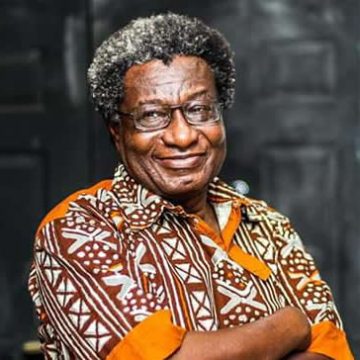
By Emman Usman Shehu
Every time a writer settles into their chair, fingers poised over the keyboard or pen hovering above the page, they are not merely beginning a task; they are initiating a profound act of faith. It’s a leap into what often feels like a creative void, an expanse where ideas may or may not coalesce, where words might flow or stubbornly refuse. In this delicate dance between intention and inspiration, the most crucial step a writer can take is to learn to trust their Muse.
The “Muse” is a concept as ancient as storytelling itself, often personified as a divine source of inspiration. In modern terms, it might be seen as the subconscious wellspring of creativity, the intuitive spark that ignites narrative, character, and theme. Regardless of how one defines it, the Muse represents that intangible force that guides the hand, whispers ideas, and pulls the writer into the flow of creation. Yet, for many, this trust is hard-won. The void can be intimidating, filled with self-doubt, the fear of inadequacy, and the pressure to produce something meaningful.
To truly trust your Muse is to embrace uncertainty. It means acknowledging that you don’t always know where a story will lead, or even how it will begin. It means allowing yourself to write badly, to follow a tangent, or to explore an idea that seems illogical at first glance. This is the essence of the “leap of faith”: stepping off the cliff of conscious control and allowing the currents of intuition to carry you. The rational mind, with its need for structure and predictability, often resists this surrender. It demands outlines, clear objectives, and guaranteed outcomes. But creativity, by its very nature, often defies such rigid demands.
Developing this trust is an ongoing practice, not a one-time revelation. It involves cultivating a quiet space, both externally and internally, where the Muse can speak. This might mean establishing a consistent writing routine, even if it’s just for a few minutes each day, signaling to your creative self that you are ready and open. It means silencing the inner critic, that relentless voice that judges every nascent thought before it has a chance to fully form. When the critic is loud, the Muse retreats, unwilling to share its fragile offerings with a hostile audience.
Furthermore, trusting your Muse implies a willingness to listen. Sometimes the Muse speaks in clear, resonant tones, offering fully formed scenes or vivid dialogue. Other times, it’s a subtle nudge, a fleeting image, or a persistent feeling. The writer’s task is to pay attention to these faint signals, to follow the thread, however thin, and see where it leads. This often requires a degree of patience and a commitment to showing up, even when inspiration feels absent. It’s in these moments of quiet persistence that the Muse often reveals itself, rewarding the writer’s dedication.
Ultimately, the act of writing is an act of discovery. It’s not about meticulously constructing something from a pre-designed blueprint, but about unearthing what already exists within the creative subconscious. By learning to trust your Muse, you unlock a deeper, more intuitive connection to your craft. You transform the intimidating creative void into a fertile ground for exploration, knowing that even when the path is unclear, your inner guide will illuminate the way, one word, one sentence, one leap of faith at a time.
*Shehu is the author of four poetry collections, Questions for Big Brother, Open Sesame, Icarus Rising and The River Never Returns. He is currently working on a poetry collection, a collection of short stories, and a collection of plays


